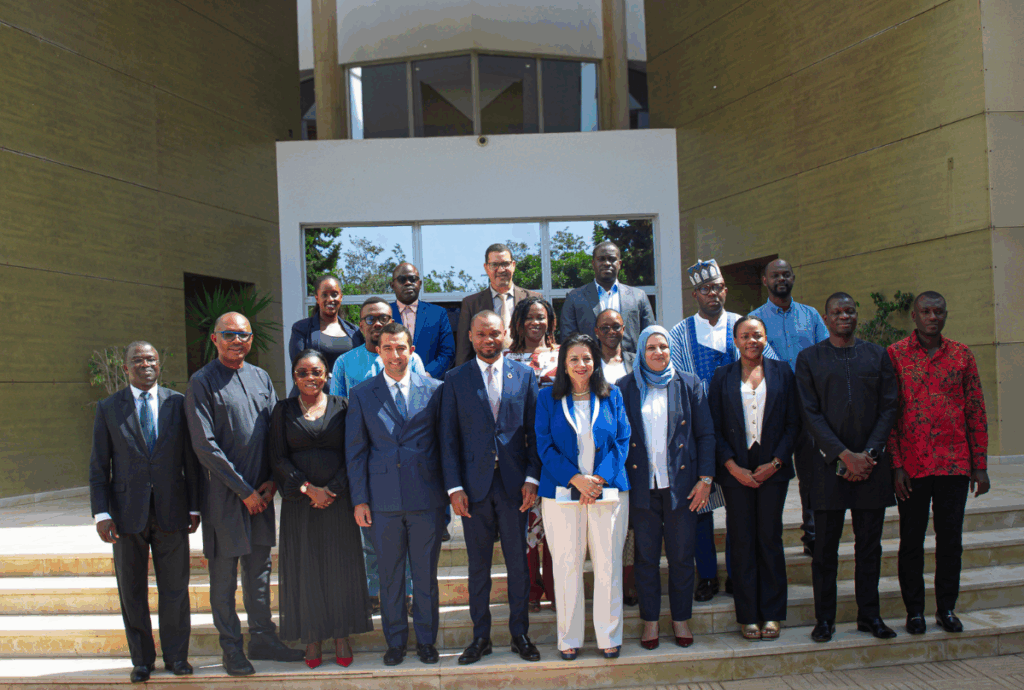
The high-level gathering brought together representatives from 11 CAITA Member States: Benin, Burkina Faso, Côte d’Ivoire, Comoros, Gabon, Ghana, Mauritania, Nigeria, Tunisia, Zambia, and the Kingdom of Morocco for a collaborative workshop and a study trip.
Smart Africa, a pan-African initiative aimed at accelerating sustainable socio-economic development through ICT, has collaborated with 11 member states to draft Africa’s first Cross-Border Data Exchange (CBDE) guidelines. This landmark move is a significant step toward fostering secure, trusted, and efficient data exchange across national borders within the continent.
The guidelines aim to provide a framework that balances the need for data sovereignty with the benefits of seamless digital integration. The participating countries—Benin, Burkina Faso, Côte d’Ivoire, Ghana, Kenya, Nigeria, Rwanda, Senegal, Sierra Leone, Togo, and Tunisia—worked together to design rules and standards that encourage interoperability while respecting national data protection laws.
Key objectives of the CBDE guidelines include enhancing digital trade, improving public service delivery, enabling cross-border digital services, and boosting the overall digital economy in Africa. The guidelines emphasize trust, transparency, and mutual accountability among nations. They also propose mechanisms for data classification, consent management, security protocols, and dispute resolution.
The initiative aligns with the African Union’s (AU) Digital Transformation Strategy (2020–2030) and supports the goals of the African Continental Free Trade Area (AfCFTA). It also builds on Smart Africa’s ongoing efforts to harmonize data governance across the continent and reduce barriers that inhibit the growth of Africa’s digital economy.
Notably, the guidelines were developed through a multi-stakeholder process involving public and private sector experts, civil society, and academia, ensuring broad input and relevance. This inclusive approach is seen as crucial for building a trusted and sustainable digital ecosystem in Africa.
The draft guidelines will now undergo a validation process, including further consultation and pilot implementations, before adoption and operationalization. Once implemented, they are expected to create a more connected Africa, unlocking new opportunities in sectors such as healthcare, education, e-commerce, and fintech.
By fostering cooperation and setting common standards, the CBDE guidelines mark a significant step toward digital sovereignty and integration, positioning Africa as a competitive player in the global digital economy while safeguarding citizens’ data rights.
Leave a Reply